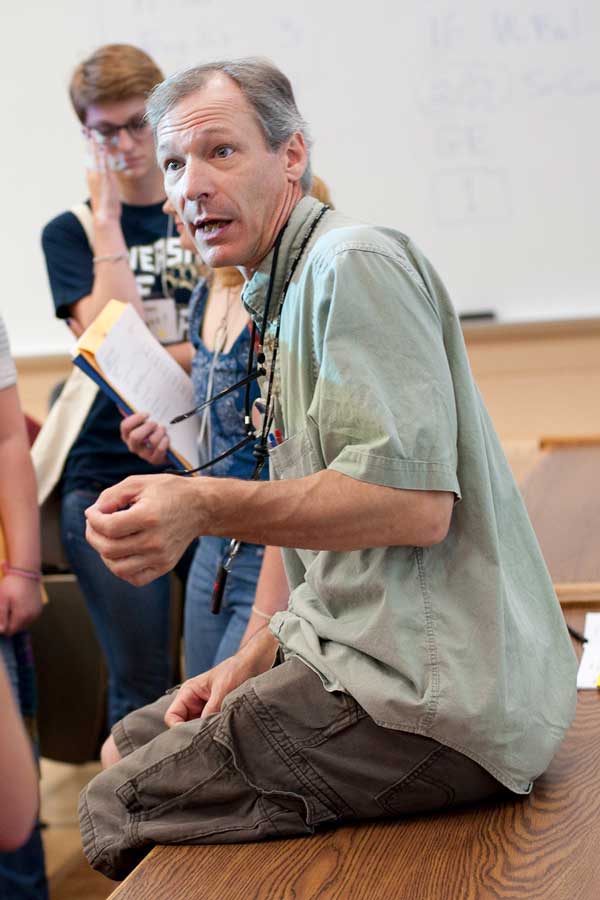
Pre-Communication Science and Disorders
Everyone wants to be heard. You can help people speak or hear.
Why study pre-communication science and disorders at Pitt-Bradford?
Speech-language pathologists and audiologists have many opportunities to work in a variety of settings, including schools, hospitals, universities, research institutes, industry, and private practice, and with a variety of populations ranging from infant to elderly. U.S. News & World Report ranked speech language pathologists 23rd on the list of 100 Best Jobs for 2019.
What will I learn?
If you're considering a career in speech-language pathology or audiology, you’ll need to go to graduate school to get a master’s degree from an accredited program and complete a yearlong clinical fellowship.

What can I do with a degree in pre-communication science and disorders?
You’ll get the scientific foundation you’ll need to pursue graduate school or clinical training.
Job titles:
- Speech language pathologist (after completing graduate school)
- Audiologist (after completing graduate school)
Employers:
- Hospitals
- Audiology clinics
- Rehabilitation clinics
- Educational services
- Research labs
- Community care centers
- Private practice
- Nursing homes
Featured Courses
-
BIOL 0212
Human Anatomy And Physiology 1A study of the gross and microscopic anatomy, physiology, and homeostatic mechanisms of the human body, stressing the relationship of structure to function. This semester covers cell types and tissues and the cellular processes of osmosis, diffusion, and active and passive transport; the integumentary system; the skeletal system and joints and bone metabolism; the muscular system and mechanisms of muscular contraction; the nervous system, mechanism of nerve impulse conduction, and the special and somatic senses. Three hours of lecture per week. -
PSY 0202
Child DevelopmentThe study of the physiological, behavioral, cognitive, social, and personality changes and differences that occur from conception until adolescence. Topics include: genetics and prenatal development; genetic disorders; cognitive development; language development; intelligence testing; personality and social development; memory development.
Students have the option to begin their studies on our campus then relocate to the University of Pittsburgh’s School of Health and Rehabilitation Sciences where they can finish the final two years for their communication science bachelor’s degree.